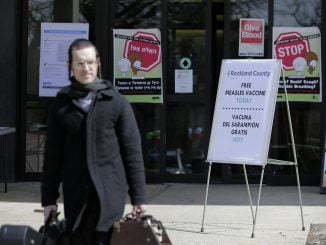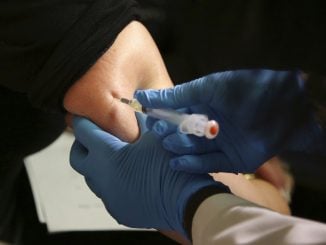President Joe Biden recently made an announcement that would strip IP rights from the pharmaceutical companies that worked tirelessly to create the vaccines that are combating and controlling the spread of COVID-19.
If enacted, it would have severe deleterious effects on American innovation. Without full patent protection as guaranteed in the Constitution, the only “right” guaranteed in the text of the Constitution outside of the Bill of Rights, every patent issued in the U.S. would be in danger.
The race to create a vaccine to combat the spread of COVID-19 resulted in successful developments from many different companies that slowly have started to return the world to a normal life. Each of these vaccines is unique and either is or will be covered by patents in this country or other countries around the world. Since patents are territorial, patents must be issued in each country to protect that piece of intellectual property (“IP”).
Why are patents so important? The United States Constitution provides Congress with the power, in Article I, Section 8, Clause 8, “to promote the progress of science and useful arts, by securing for limited times to authors and inventors the exclusive rights to their respective writings and discoveries.” The companies that made these extraordinary efforts and took calculated risks to develop COVID vaccines in 2020 deserve IP protection for their inventions. How can companies that invest billions of dollars in research not expect to receive protection for the tremendous investments they put into the discovery of vaccines to end pandemics?
Two countries, India and South Africa, petitioned the World Trade Organization (WTO) for a waiver of IP rights for the COVID vaccines. Their reasoning was to allow for production of vaccines for poorer countries through their large pharmaceutical companies, but production of complicated vaccines, especially those using mRNA like Pfizer and Moderna, cannot happen overnight. To produce vaccines from scratch could take up to a year for these countries.
Giving up IP rights worldwide, as proposed by the Biden administration, will not relieve that lack of vaccines. The only way to help these economically disadvantaged countries is to lessen trade and tariff restrictions that make distribution of the vaccines and the raw materials needed to manufacture these vaccines difficult.
Further, patents provide only enough information to meet the legal standard of disclosure. To manufacture vaccines, one also would need to know trade secrets associated with the patents for that particular vaccine production. All of this valuable IP would be given away if the waiver of IP rights is approved by the WTO.
Effectually, the countries that produce most of the generic drugs, i.e., India and China, would have unencumbered access to valuable IP and would be able to undercut any potential profit of U.S. inventors and developers of these vaccines. The technology that was used to develop the vaccines would be expropriated from those companies who invested time and money into the development of these miracle vaccines.
There is no need to give away IP. The companies that developed the vaccines have already planned ahead, creating relationships with other manufacturers through voluntary technology transfer through the licensing of their IPs. This initiative has led to the effective production of vaccines without having to take away IP rights.
Progressive Democrats see this waiver as an opportunity to scale back IP rights for pharmaceutical companies. Elizabeth Warren recently stated that her goal is to set a precedent to erode IP rights for all pharmaceuticals around the world. Her explanation is that “We’re in a fight over a waiver to [IP] rules — rules that never should have existed in the first place.”
So much for her obeyance to the Constitution.
If this IP waiver is approved by the Biden administration, then what will happen the next time there is a need for a vaccine to stop a terrible disease? Who will put up the billions of dollars needed to develop a cure to protect the US people? No research company would take that risk unless it can get IP protection for their discoveries.
John Calvert worked at the Patent and Trademark Office in Alexandria, Virginia, for 25 years and has stayed active in the field since retirement.



